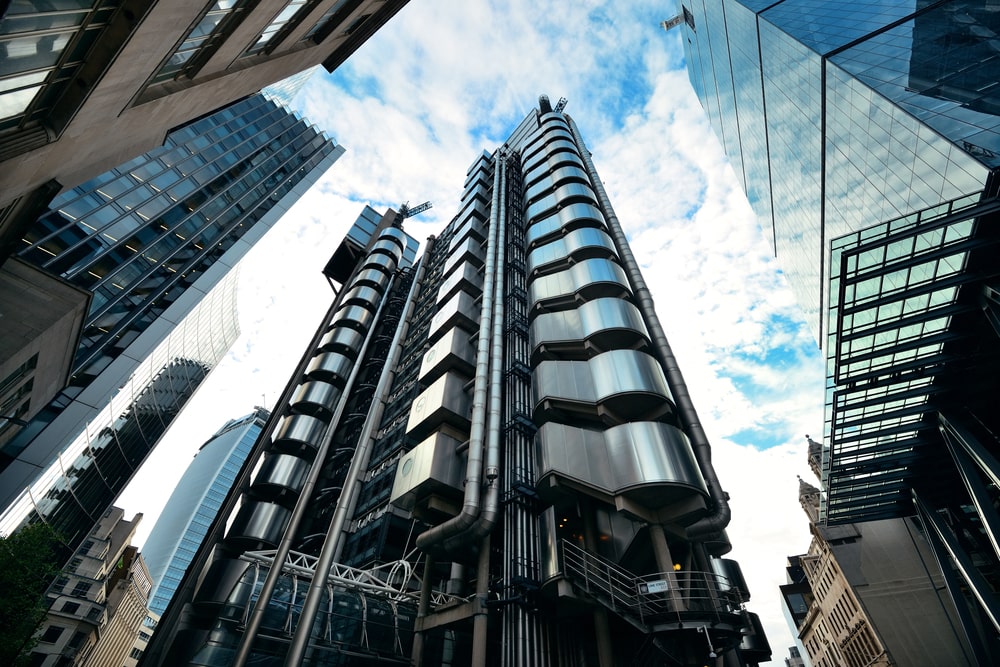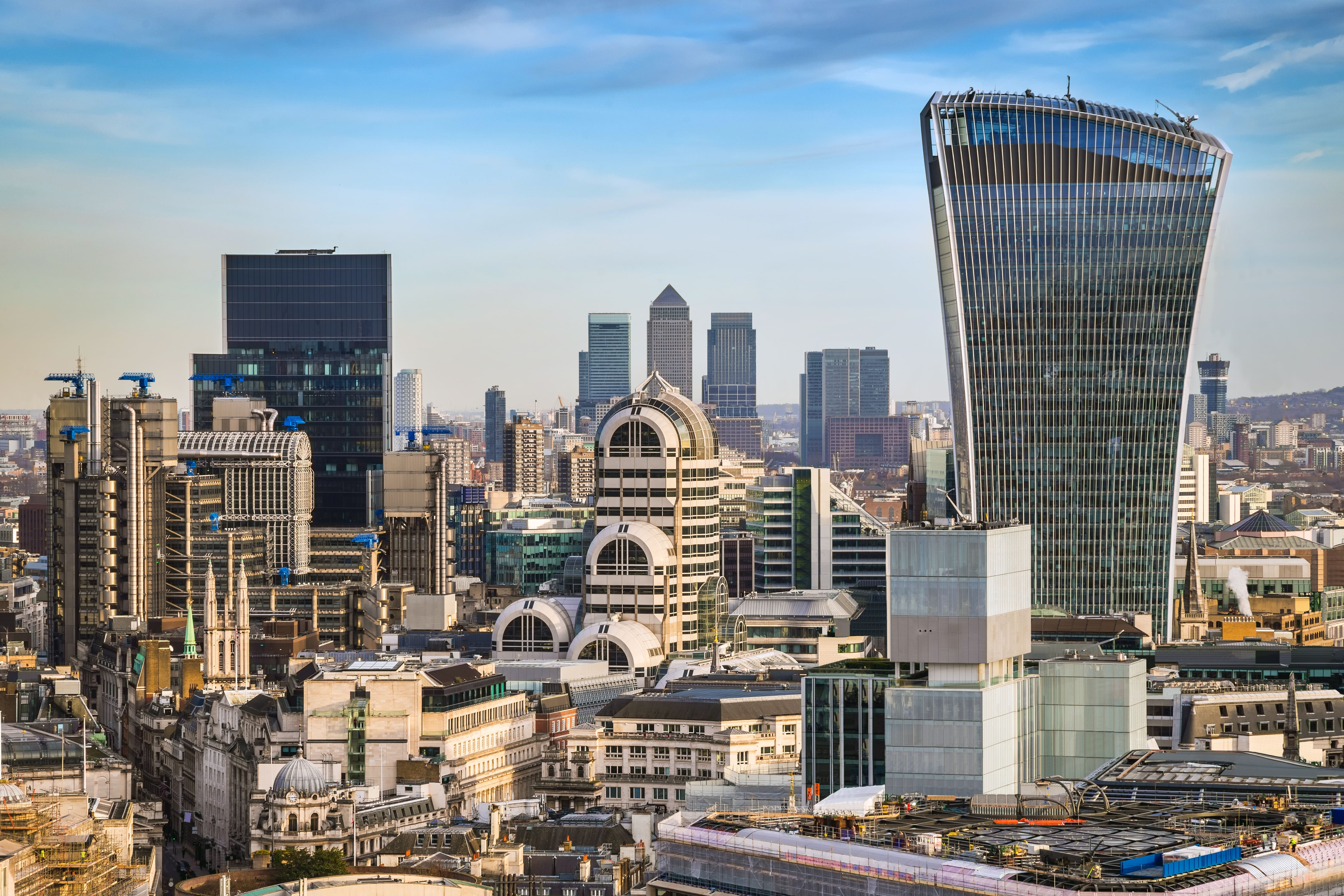
Russell Group attended the recent flagship Insurance Insider London market conference event which debated the future of EC3, its opportunity and its challenges. It was a great chance to take stock, reassess where we are right now, to find out what London can do to become more resilient, more relevant, and to future proof the market.
Bronek Masojada, CEO of Hiscox, who confirmed that he is stepping down after 28 years working in the business (21 as CEO) opened the conference with an interesting topic focusing on what has shaped the market during his tenure and the big themes that we must address as we go forward. Masojada began with the reflection that when we think about the markets, ‘we have become accustomed in the London market, to think that everything is shaped by events, dear boy events, as Harold Macmillan said. I think that's inevitably correct, but it isn't the only thing that shaped what's happened.”
He believes that it is “initiators” that shape events and divides the world into four groups of people – the surfers, change makers, status quo preferers and the rest who are the players on the field. That interaction between the four groups drives the way the market has evolved. The past, of course, shapes the future: “if you remember, in 1988, we had Piper Alpha, we had the LMX spiral, the impact of asbestosis pollution coming through. Then in 1992, we had Hurricane Andrew and that was the first hard market I experienced. We had the soft market of 1998 onwards, obviously ending with 9/11 and it's one of those moments where we can all remember where we were when we heard that news.
“Some may remember 04-05, which may feel a bit odd as a turning point in the marketplace. But it's really in fact, the first time that we began the debate at a macro level around climate change. Because in 04 we had four hurricanes that thumped into the East Coast of America. Then in 05, we had three more at which point regulators, rating agencies and industry participants were asking themselves is this the new normal and do we have to plan as if it is the new normal?”
The FSA saying that the London market must be a contract system before inception changed the way the industry works as did the growth of computing power which Masojada recalls at the start of his career as a junior consultant carrying around: “the portable computer that weighed 20 kilos. If you think about the growth of data, digitalization and so on, it's the reducing cost of computing power which has changed our lives and industry and will continue to do so. I would argue more in fact, than those events that we tend to focus on at a macro level.”
The outgoing Hiscox CEO mentions David Rowland, who was the chair of the task force that Masojada worked on, in 1991. In 1993 Rowland became chairman of Lloyds and: “was captain of the ship as we went through the settling of the litigation that was enveloping the market and beginning to basically bring it to its knees not just in London but worldwide. The creation of Equitas along with Robert Hiscox drove the creation and introduction of corporate capital, which has transformed the London market. “Those two individuals, working I'd say alongside each other not always together, transformed the marketplace to what it is today, and their legacy will live on. We are all benefiting from it.”

The consequences of that initiative, in particular corporate capital, has led to the “Wimbledisation of the London market”, which has happened in the financial markets as well, where Britain provides the playing field but most of the players are foreigners or owned by foreigners. Masojada said: “Think about Wimbledon. We've had a few British success stories but mainly foreigners [have won]. Most of us are owned in some way by foreign capital and that has again changed the market and will change the impacts of the markets going forward.”
He praised Inga Beale who started PPL: “Inga had the courage to get the mandate and say you will have X percent of your policy closed an electronic means by the state. That has transformed the markets. “Imagine if we had tried to do all those contracts - over 100,000 of them - on email with no reconciliation and no record of where we are. Inga [deserves credit] for beginning the conversation about diversity and inclusion with a huge emotional reaction in the market but five years on, pretty much ingrained in the way things are happening.”
John Hancock earns Masojada’s admiration for tackling systemic exposures in silent cyber and beginning to force all of us to make that visible in our day-to-day work. John Neal too for the climate exclusions policy work that is ongoing. He said: “There are some real changemakers whose legacy will live on way longer than the people who walked away with a big cheque in their back pockets.”
In terms of digital, he is full of huge admiration for players like CFC, which managed to get to a $500 million business with one office in London trading mainly with like brokers outside of London. He said: “How many other London based businesses are trading like that at scale in an international context because that's what digital allows you to do.”
So, what about the future? According to Masojada: “There are four things that will decide whether you're a surfer, a change maker, or resistor. Number one is climate. Number two is diversity and inclusion. Number three is systemic risk and number four is digital.”
“What very few people in the UK realise is that it is the law in the UK that by 2050 the UK will be carbon neutral. There was no huge debate in Parliament. It got shuffled through in the last week of Theresa May’s premiership as a statutory instrument in Parliament, but it's the law. As a listed company, Hiscox has to say what is our plan to achieve x per cent by 2030 and carbon neutrality by 2050 by the end of the [next financial] year.”
How the industry addresses systemic risk going forward and the future of digital are the two big questions going forward?” concluded Masojada. He said: “The pandemic showed that we haven't figured out how to manage it [systemic risk] and how as an industry, we play a role. It's crying out for a change maker to do that. Around the world, governments will not do that, they don't want to take on the financial risk in an unlimited way.”
Finally, digital. Masojada is a big believer in digital across three areas: internal activities, market level activity and the distribution and client interaction elements of that but digital world is going through what the.com world went through. FinTechs with zero revenue and billion-dollar valuations were going to change the world! Amazon, eBay, and PayPal were a few huge successes out of hundreds, so interesting to see who the winners in the new FinTech landscape will be.
Masojada concluded: “The final thing to say is actually something that was communicated to me in 1993 when I just joined Hiscox by Alec Foster, who was one of the directors at the time. He said to me, ‘Bronek, it's pretty simple. There are those that dream and those that do. Happy are those who dream, then do.”

Related Articles
Reinsurance
Reinsurance
Reinsurance